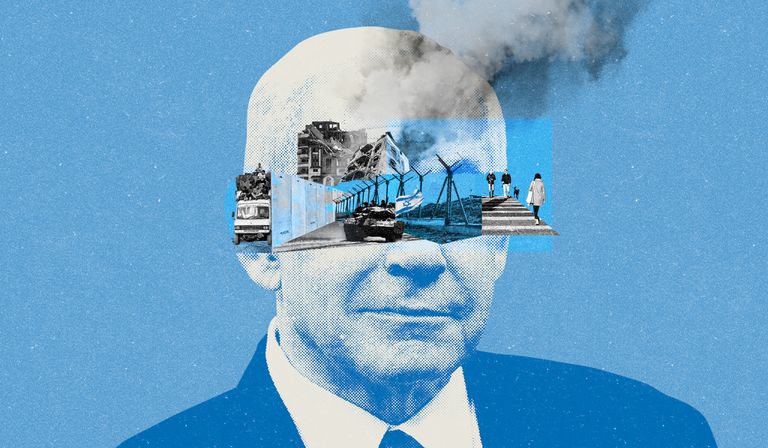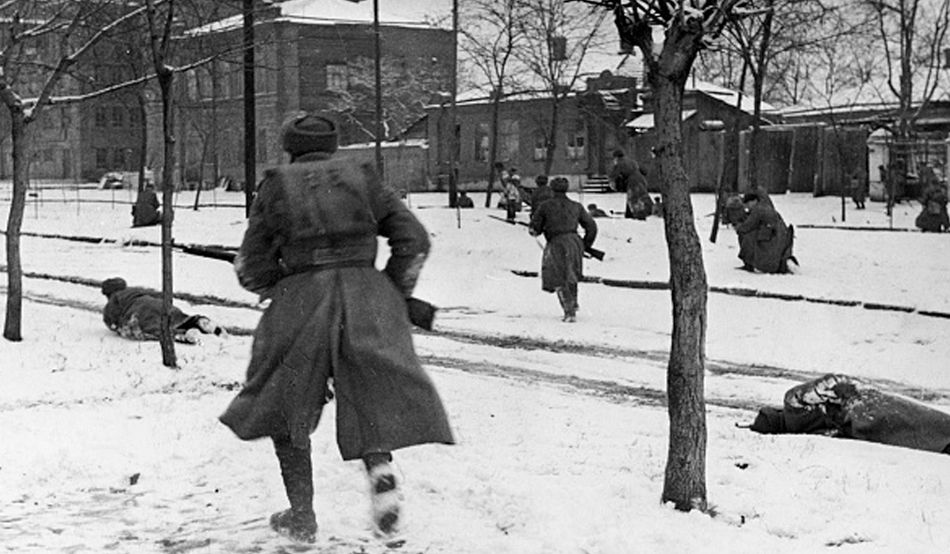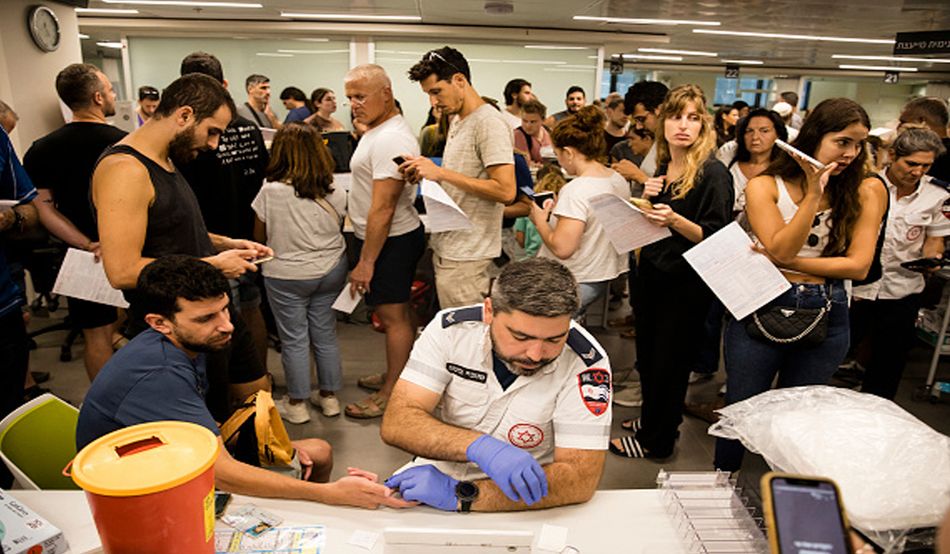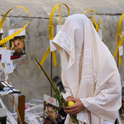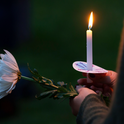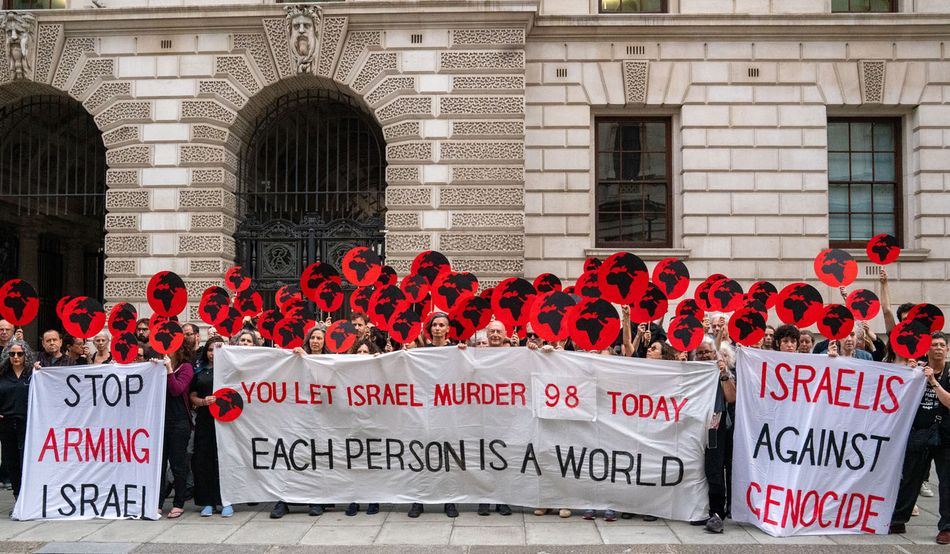In June 2024, I visited Israel for the first time since the 7th October Hamas attack and the Israel Defense Forces (IDF) assault on Gaza that followed. Since then—at the earliest—I have been appalled, but also intrigued, by the extraordinary ability of so many Israelis to simultaneously justify, deny, ignore or deliberately avoid speaking and thinking about the ongoing systematic obliteration of the Gaza Strip and the Palestinians who live there.
This is not a unique response. And it’s certainly not surprising for a population that perceives itself as a victim even as it is collectively complicit in a genocidal undertaking carried out in its name (and by soldiers who are sons and daughters, grandchildren, spouses and parents of a vast proportion of its citizenry). But because I was raised in Israel, served in the IDF and have family and friends in the country, my sense of shock and dismay is painfully intimate.
Having spent most of my career studying collective denial, I am able to see how such Israeli responses are part of a historical pattern. During the 1980s, my research confronted the last remaining major denial of postwar Germany: the myth of the purity of the Wehrmacht, or Nazi military. Forty years after the Second World War, Germans had gradually “come to terms” with their responsibility for the Holocaust—after initially perceiving themselves as Hitler’s main victims. But they still bought into the argument that, unlike the Gestapo and the SS, regular German soldiers had conducted a decent war, if not a necessary and justifiable one, against the Red Army on the Eastern Front, in order to protect Europe from a “Bolshevik-Asiatic flood”. According to this thinking, the German military had little to do with terrible crimes, which were perpetrated behind the soldiers’ backs.
It took another decade for Germans to acknowledge that their own fathers and grandfathers had, in fact, been complicit in a criminal war in which some 26m Soviet citizens were killed, most of them civilians, including large numbers of Jews.
In the early 1990s, I became increasingly interested in the Holocaust. The very first article I published was a review essay on several important books that had come out at the time. One of those was Assassins of Memory: Essays on the Denial of the Holocaust by the brilliant Jewish-French historian Pierre Vidal-Naquet, originally published in 1987. The book dissected the widespread phenomenon of a “revisionism” known in France as négationnisme, whose goal was to deny or minimise the Holocaust. This was no mere right-wing or neo-Nazi trend. Indeed, by the 1970s and 1980s it was something of an intellectual and academic fad, epitomised by the literary scholar Robert Faurisson, who applied his technique of textual analysis to denying the existence of the gas chambers.
As a result of this trend, in 1990 France passed the Gayssot Law, making denial of crimes against humanity by the Nazis a misdemeanour. Yet cases of “negationism” have persisted in French academia. As the historian Henry Rousso pointed out in 2006, France was the only country in which denial of the Holocaust became a public issue and the cause of much debate, policies and judicial action. It found support on the extreme right and on the fringes of the extreme left, where antisemitism also experienced a rebirth. The fact that negationist arguments were propagated at some French universities gave them a certain scholarly cache, in part because “revisionists” questioned the status of truth in history and raised the possibility that various interpretations of the past, including of the Holocaust, may be just as true as others.
Vidal-Naquet pointed out that these revisionists had principles in common. They believed that “there was no genocide and the instrument symbolising it, the gas chamber, never existed”; that the “final solution” was nothing more “than the expulsion of the Jews toward eastern Europe” which, as Faurisson claimed about French Jews, was never anything more than their repatriation, since “most of the Jews of France came from the East”; that the number of Jewish victims was far smaller than has been claimed—not more than 200,000, according to Faurisson, and certainly no more than a million, according to other revisionists.
Forty years after the Second World War, Germans had gradually “come to terms” with their responsibility for the Holocaust
To this were added assertions that, if Germany bore any responsibility for unleashing the Second World War, it was shared by the Jews. Further, humanity’s main enemy at the time was the Soviet Union not Nazism, and the Holocaust “hoax” was an invention of the Allies, crafted by the Jews, and especially by the Zionists.
The logic of such exercises in denial, notes Vidal-Naquet, is akin to the Freudian joke about a borrowed copper kettle. “Upon its return, B complains that the kettle has a big hole, making it unusable. Here is A’s defence: 1. I never borrowed the kettle from B. 2. The kettle had a hole in it when I borrowed it from B. 3. I returned the kettle in perfect condition.” Vidal-Naquet suggests that the joke “can be extended beyond Freud. Why wouldn’t A say: I was the one who loaned the kettle to B, and it was in perfect condition.” Indeed, he writes, “there is an entire literature proving that the true murderers of the Jews and, above all, of the Germans, were Jews: Jewish kapos, Jewish partisans, etc. The collective murder, which never took place, was thus fully justifiable and justified.”
Such denialism prompted the French filmmaker Claude Lanzmann to document the Holocaust through accounts of those who had experienced it in his haunting 1985 film Shoah. For Vidal-Naquet, Lanzmann’s film constitutes “a great work of history”, which is able to “reconstruct a past that was all too real”. Conversely, the goal of Holocaust revisionism is not to revise our understanding of the past, but to deny it altogether.
While Holocaust denial remains a relatively marginal phenomenon, more than a few states and organisations responsible for genocide have engaged in vociferous denial. Turkey, for instance, to this day officially denies its Ottoman predecessor’s well-documented genocide of the Armenians during the First World War. Ironically, it was that very genocide which prompted the Polish-Jewish lawyer Raphael Lemkin, who finally coined the term “genocide” in 1944, to seek a new legal definition for the attempt to destroy an entire group. Lemkin did this work in the years leading to the Nazi invasion of Poland, which destroyed his own family.
Denial, obfuscation and erasure all play a role in licensing future atrocities, as Lemkin surely understood. Spurring his generals to act with utmost ferocity in 1939, Hitler famously told them, “Who today remembers the Armenians?” Such erasure not only of past cultures but the means of their destruction is still commonplace across Eastern Europe. Through my own travels in the former Eastern Galicia, now west Ukraine, I experienced how the civilisation my own family migrated from to Palestine had been completely forgotten, the traces of its annihilation effaced.
What is just as revealing in Vidal-Naquet’s book, however, is his understanding, as early as the 1980s, of the subtle ways in which revisionism and denial can work. These are far more complex than the deceits of logic, tortuous literary theories and falsification or misreading of documents practised by infamous revisionists and deniers such as Faurisson and the British historian David Irving. As Vidal-Naquet lucidly explained, the Holocaust came to play an important role in attacking and in defending the State of Israel.
“In the case of the genocide of the Jews,” writes Vidal-Naquet, “it is clear that one Jewish ideology, Zionism, exploits the great massacre in a manner that is on occasion scandalous.” Identifying a phenomenon that has only grown since he wrote these words, the historian, who died in 2006, recognises that in Israel “the genocide of the Jews abruptly ceases being a historical reality, experienced existentially, and becomes a commonplace tool of political legitimation, brought to bear in obtaining political support within the country as well as in pressuring the diaspora to follow unconditionally the inflections of Israeli policy.”
Most importantly, and just as controversial today as it was four decades ago, he observes that one side-effect of this has been “a constant and adroitly fueled confusion of Nazi and Arab hatreds”. Touching the very nerve at the centre of the Israeli exploitation of the Holocaust, Vidal-Naquet finally contends that in Israel “the Shoah serves as a perpetual self-justification in all domains, in legitimizing the slightest border incident as marking a renewal of the massacre, in assimilating the Palestinians (toward whom the Israelis, all the same, are guilty of undeniable wrongs) to the SS.” This is despite the fact that even then, let alone today, “the great majority of Israel’s inhabitants has had no direct experience of Nazi persecution.” Just as perversely, he points out, many diaspora Jews understand Israel in the same way.
Such astute observations may better prepare us to leap into the present moment. Today, among Israelis there is widespread denial of the genocide being carried out by their country in Gaza. For we can clearly recognise here elements of the logic of French Holocaust denial, as well as of the twisted argumentation of German scholars of the mid-1980s, such as Ernst Nolte, who claimed that the Nazi genocide of the Jews originated in, and came primarily in response to, the crimes of the Bolsheviks.
Simultaneously, Israeli denial owes much to another logic identified by Vidal-Naquet, as well as by uncommon Israeli observers such as the late historian Yehuda Elkana: as a nation born out of the ashes of the Holocaust, Israel has the right—if not the duty, and in any case the licence—to treat all threats to it as existential, Nazi-like threats. To do all it can to eradicate them.
This denial-cum-self-justification did not begin on 7th October, although Hamas’s massacre ignited a particularly lethal combination of fear, loathing, hatred and violence. It goes back to the fundamental denial on which the state rests, its very birth by fire and sword. The great denial of my generation, those born in the first decade after the establishment of Israel in 1948, concerns the mechanism that enabled us to grow up in a Jewish-majority state in a land that, shortly before our birth, had twice as many Palestinians as it did Jews living in it.
Coming face-to-face with my European origins in my forties, it was through a recognition of the erasure of Jewish life in eastern Europe that I came to recognise and lament the erasure of Palestinian life in what became the State of Israel. In other words, my own biography, as that of so many of my peers, is deeply rooted in denial. As far as this first generation of Israeli-born Jews was concerned, the Nakba—the Arabic term for “catastrophe” referring to the expulsion of 750,000 Palestinians from what became the State of Israel during its self-designated War of Independence—never happened. And if it did happen, it was voluntary. The Palestinians left only, so we were told, because they were promised by the leaders of the surrounding Arab states that they would soon return as conquerors behind the victorious Arab armies, who would throw the Jews to the sea.
Moreover, the expulsion that never happened was incomplete. The new state was left with a bothersome Arab minority that both didn’t belong to the new Jewish state and served as an unpleasant reminder that this was its homeland long before modern Zionists arrived in Palestine.
Thus it was that the Nakba, denied by Israel and commemorated as a founding catastrophe by Palestinians, returned with a vengeance in 2023. In the aftermath of Hamas’s attack, numerous Israelis called for a second Nakba, a Gaza Nakba, one that would finally complete that repeatedly denied and erased event that happened seven decades earlier. This is precisely the Nakba that all Palestinians under Israeli rule always feared. It is the culmination of the Nakba they had repeatedly experienced since it was first unleashed as a transformational event of dispossession in 1948. Yet simultaneously, even as the Gaza Nakba is unfolding, it is also being denied, couched in terms of self-defence and human shields and collateral damage and lack of choice—just as with its first iteration in 1948.
Denial precedes and facilitates the act and may linger for generations. It sustains the lie that historians must expose
For denial is not only, as Vidal-Naquet noted, something that happens after the fact. It is part of the event itself. Even in the case of the Nazis—with some lurid exceptions, such as the Wannsee Conference of 20th January 1942, where Nazi officials outlined how to bring about the “final solution of the Jewish question”, and Himmler’s October 1943 speech to SS officers in Posen, where he described mass murder as a “glorious page in history”—perpetrators generally do not like to self-identify as such. Certainly, since the terms “crimes against humanity”, “ethnic cleansing” and “genocide” came into use, those guilty of them have tended to abhor calling their actions by those names.
What about the public at large? Under the Nazi regime, for instance, Germans famously both knew and denied knowing about the persecution and ultimate murder of the Jews. Public spectacles such as the November 1938 pogrom known as the Night of Broken Glass, or Kristallnacht, were replaced by deportations to the dreaded “east” and frightening yet also fascinating rumours about mass extermination. The latter were not infrequently confirmed by soldiers on leave and civilian occupation personnel (not to mention by the cheap sale in the Reich of personal items that appeared to have been separated from their former owners).
When the strategic bombing of their country intensified, Germans described this vaguely as Jewish revenge. This predilection to speak of being subjected to vengeance for crimes that were simultaneously denied was noted by Hannah Arendt as late as 1950, when she visited Germany for the first time since fleeing the Nazis. She wrote about this experience in a poignant article for the American magazine Commentary.
That is why proving intent, a major factor in determining whether the crime of genocide is being committed, tends to be so difficult. Leaders who take their nations on such a course, field commanders who send out their troops to kill innocents, soldiers and policemen who pull the trigger, rarely describe what they are doing as murder. The Israeli student protesters who prevented me from giving a lecture in Israel in June 2024, young men and women who had just returned from reserve duty in Gaza, responded to the rumour that I had spoken of the war as genocidal with the cry: “We are not murderers!” To be sure, they sincerely believed it. Denial precedes and facilitates the act and may linger for generations. It sustains the lie that historians must expose, shattering long-held national myths.
Israeli denial begins with refusing to see the true cause of the violence. Israel remained a Jewish-majority state only for the first two decades of its existence. With the occupation that followed the 1967 Six Day War, it was transformed into a 50:50 state whose Palestinian component was partly made of second-class citizens. The majority of Palestinians were the occupied populations of the West Bank and Gaza, many of whom had been expelled in 1948, and their descendants.
This population has no rights and has been living under increasingly oppressive military rule. Such a condition was bound to breed resistance, including violent resistance, which in turn brought ever greater repression. Gaza was under siege for 16 years after its takeover by Hamas in 2007, during which it endured strict control of food, water and power, as well as of entry and exit. Israeli political observers and intelligence officers had long warned that it was merely a matter of time before the rage of the two million people imprisoned there, one of the most densely populated and impoverished sites in the world, exploded.
And when it did explode, the violence was immediately perceived as an inexplicable, surprise event that could not have been foreseen. The only plausible root was the irrational, innate hatred of Jews by Palestinians. Everything that had gone before was denied, knowingly or not. The clock was set to zero at 6:30am on 7th October when the attack began: everything changed and history had to be rewritten.
Given that Hamas’s violence was so shocking and unprecedented, and given that it embodied such a savage and allegedly genocidal intent, the response had to be just as unprecedented and destructive. And yet precedents were cited: not those decades of occupation, oppression and dehumanisation of Palestinans, but the Holocaust. The killing of some 1,200 people, including about 800 Israeli civilians, was instantaneously depicted as the largest killing of Jews since the Holocaust. The response had to correspond to this improbable link between Auschwitz and Gaza. Only this time, the Jews were not helpless and did not depend on Gentile pity and troops. Moreover, since the attack was equated with the Holocaust (there were those who asserted that it was, indeed, worse), then Hamas were modern-day Nazis, as they were soon labelled by mainstream media talking heads and politicians in Israel, but also in countries including the United States and the United Kingdom.
And so, the denial of the occupation (a word considered in Israel to indicate radical-left sentiments), the denial of Israel’s military superiority over the Palestinians, the denial of the state’s decades-long refusal to reach any political compromise and cede any land, and the denial of the context of the 7th October, legitimised a response to an imaginary Nazi attack, which this time could be given the right answer—total annihilation. Genocide for genocide, the secret, subconscious dream of so many generations of Israelis who never recovered from the image of their ancestors being led like sheep to the slaughter.
This is not just a denial of the immediate circumstances, but also a denial of history. It is an attempt to go back to the scene of the original crime, in this case the Shoah, and reverse the results. During the war of 1948, there were accounts of Holocaust survivors fighting Arabs and imagining they were killing their Nazi oppressors. In 2023, no one fighting Hamas had been alive during the Holocaust. But the state had done its utmost to defend its own project of occupation and oppression by keeping that memory alive—a denial of the reality of oppressing others by recalling one’s own, or rather one’s ancestors’, persecution and murder.
Finally, there is the denial of a reality which, to any objective observer, is undeniable. And here the mechanism that Vidal-Naquet described so well—where two contradictory things become true at once—has kicked in with remarkable effectiveness. First, there cannot be any genocide in Gaza, because Israel is a country created in response to the genocide of the Jews. This means that any accusation of genocide against Israel, especially after it had been subjected to a massacre allegedly akin to the Holocaust, is sacrilege and a lie. Second, there is no genocide in Gaza because, had Israel wanted to carry out a genocide, it would have killed hundreds of thousands, if not millions, right away. After all, Gaza does not look like the Holocaust—there are no extermination camps, no shooting pits. Since there is no Auschwitz, no Babi Yar, in Gaza, it cannot be a genocide. And since genocide is precisely what Hamas had in mind for Israel, Hamas must be eradicated, even if that means genocide.
At the same time, since Hamas uses the population as human shields, they say, there is no choice but to harm civilians—only, of course, as collateral damage. The killing of innocents is regrettable, but that’s the fault of Hamas. In any case, there are in fact no innocents in Gaza, because everyone was involved, they all supported Hamas. And even the children, if they are allowed to grow up, will join Hamas and want to murder us—all the more so now, after we have killed their entire families. But there is no genocide in Gaza. The only genocide was that which was carried out by the Nazis, and the genocide intended by Hamas against Israeli Jews, for which it must be destroyed. If anyone tries to carry out genocide against the Jewish state, there is no choice but to eradicate them.
A similar circular logic of denial and licence to kill has been employed regarding starvation. On 8th October 2023, Israel’s then defence minister, Yoav Gallant, proclaimed that Gaza would receive no food and no water and no power, that Hamas were human animals and would be treated as such. But the implications of this statement were denied as words uttered in rage after the massacre by Hamas. When Israel actually implemented these policies, gradually strangling the population, having already destroyed their homes, water and power plants, and when the IDF deliberately targeted the Strip’s medical infrastructure, medical workers and doctors, the obvious intent of those actions was denied. The argument was that they were merely meant to destroy Hamas, whose ubiquitous presence left the IDF no other choice.
And when reports from Gaza indicated a growing humanitarian crisis and food scarcity, Israel responded by creating, with the US, the Gaza Humanitarian Foundation (GHF), which funnelled two million starving people to four distribution points. At these hubs, hundreds were shot in a brutal policy of using bullets, tank shells and artillery for crowd control. This was all done while the Israeli government denied that there was, in fact, any starvation in Gaza.
Thus, the reality in which most of the population in Israel lives is founded on layers of denial, amplified by the vast majority of the country’s media. Yet, the evidence does show that Israel has used starvation as a tool of war from the very beginning, just as its leaders said they would in October 2023. It also shows that the goal of Israel’s government, as many politicians proclaim even today, has been to make Gaza uninhabitable for the population, to move the Palestinians to the southernmost part of the Strip, and to seek countries that would take in as many people as possible, while Israel debilitates and decimates those who live there.
The evidence shows that the vast majority of the estimated 66,000 (the current official death toll from Palestinian authorities) to 100,000 (which some studies, including in the Lancet, believe is the true number) killed in Gaza were civilians. Of these up to 20,000 were children, and the long-term mental and physical damage inflicted on the population, especially the children, will last for generations. The evidence shows that atrocities, which might have been thought of as ethnic cleansing, have become genocidal because people in Gaza have nowhere to go. Ever-shrinking so-called safe zones have been repeatedly targeted.
Finally, the evidence shows that the very use of the term “war” for what has been happening in Gaza since at least the summer of 2024 is a euphemism for a systematic campaign of demolition. It is estimated by the UN that more than 70 per cent of all buildings, including 92 per cent of Gaza’s housing, most schools, hospitals, mosques, universities, parks, museums, agricultural land, archives and all other public buildings have been destroyed or damaged. And the call for a total victory over Hamas has come to mean the eradication of Palestinian society in Gaza, because—as has been repeatedly alleged since early October 2023 by Israelis, including the president, Isaac Herzog—every Palestinian in Gaza bears responsibility for the horrors of 7th October. In September, an independent UN commission concluded that Israel has committed genocide in the Gaza Strip.
As this magazine went to print, a ceasefire deal seemed imminent. By all accounts, most Israelis today want the war to stop. They want to bring home the hostages kidnapped by Hamas and, by a fairly large margin, they want to see Benjamin Netanyahu and his corrupt, bloodthirsty cabinet thrown out of office. But most of these same people have little or no empathy for the population of Gaza. Just like postwar Germans, for the average Israeli to recognise that the IDF was involved in a criminal, genocidal war still seems impossible. Their personal and familial associations with the army over several generations are such that they would need time, or a true process of restitution, truth and reconciliation with Palestinians to recognise, as Germans did more than four decades after the Second World War, that the IDF is conducting an annihilatory operation. Denial will likely persist well into the old age of those soldiers currently serving.
But, as has happened in other countries, at other times, Israel will be able to confront its crimes only if it is forced to pay a high price for them, not thanks to a process of introspection. Only at that point will the walls of denial begin to crack. For that to happen, the US and European powers will have to snap out of their own apparent denial of what they surely know is happening on the ground. As signatories of the UN Genocide Convention, it is their obligation, and as the presumed protectors of the rule of international law and human rights, it is their duty. As long as they do not act, they will have been complicit in this horror, as well as in its denial.
